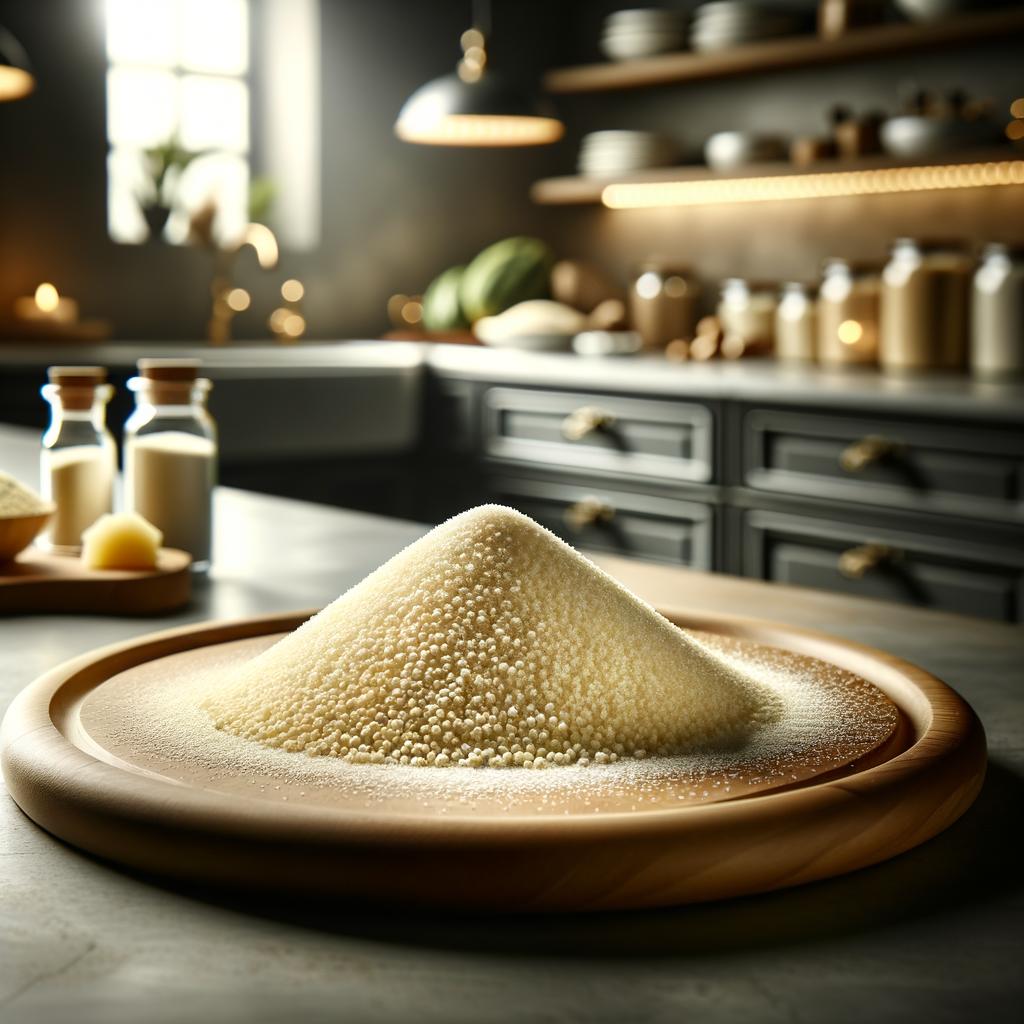Semolina

Description
Semolina, a golden-hued grain, is a coarse flour derived from durum wheat, one of the hardest wheat varieties known to mankind. It is characterized by its gritty texture and subtly sweet, nutty flavor. This humble grain's unique characteristic is its high gluten content, which lends elasticity and robustness to the dishes it graces, setting it apart from other wheat-based flours.
Primary Uses
Semolina's versatility is celebrated in kitchens worldwide. In Italian cuisine, it's the star ingredient in making pasta, gnocchi, and the delightful dessert 'semolina pudding'. It's also the secret behind the crumbly texture of the North African staple, couscous. In India, semolina, locally known as 'sooji', is used to create a variety of dishes, both savory and sweet, such as 'upma' and 'halwa'. Beyond the culinary world, semolina has been used in traditional remedies for digestive issues due to its high fiber content.
History
The story of semolina begins with the ancient civilizations of the Mediterranean and Middle East, where durum wheat was first cultivated. It was the Romans who began grinding it into semolina around 1st century AD, using it as a base for their staple, 'puls', a precursor to modern-day polenta. Over time, semolina traveled across continents, evolving in use and preparation, making it an integral part of diverse food cultures. An interesting folklore associated with semolina is the belief in certain cultures that a dish made with semolina, when consumed before an important event, brings good luck and success.
Nutritional Information
Nutritionally, semolina is a powerhouse. It is rich in protein and fiber, offering a slow-release of energy, making it an excellent choice for diabetics and those looking for sustained satiety. It is also packed with B-vitamins, iron, and magnesium. Compared to refined wheat flour, semolina's nutritional profile is superior, offering more essential nutrients and fiber, making it a healthier choice. However, due to its high gluten content, it may not be suitable for those with gluten sensitivities or celiac disease.
Semolina, with its golden grains, has woven a rich tapestry of culinary delight across cultures, bringing people together over shared meals, and continuing to be a cherished ingredient in kitchens worldwide.

